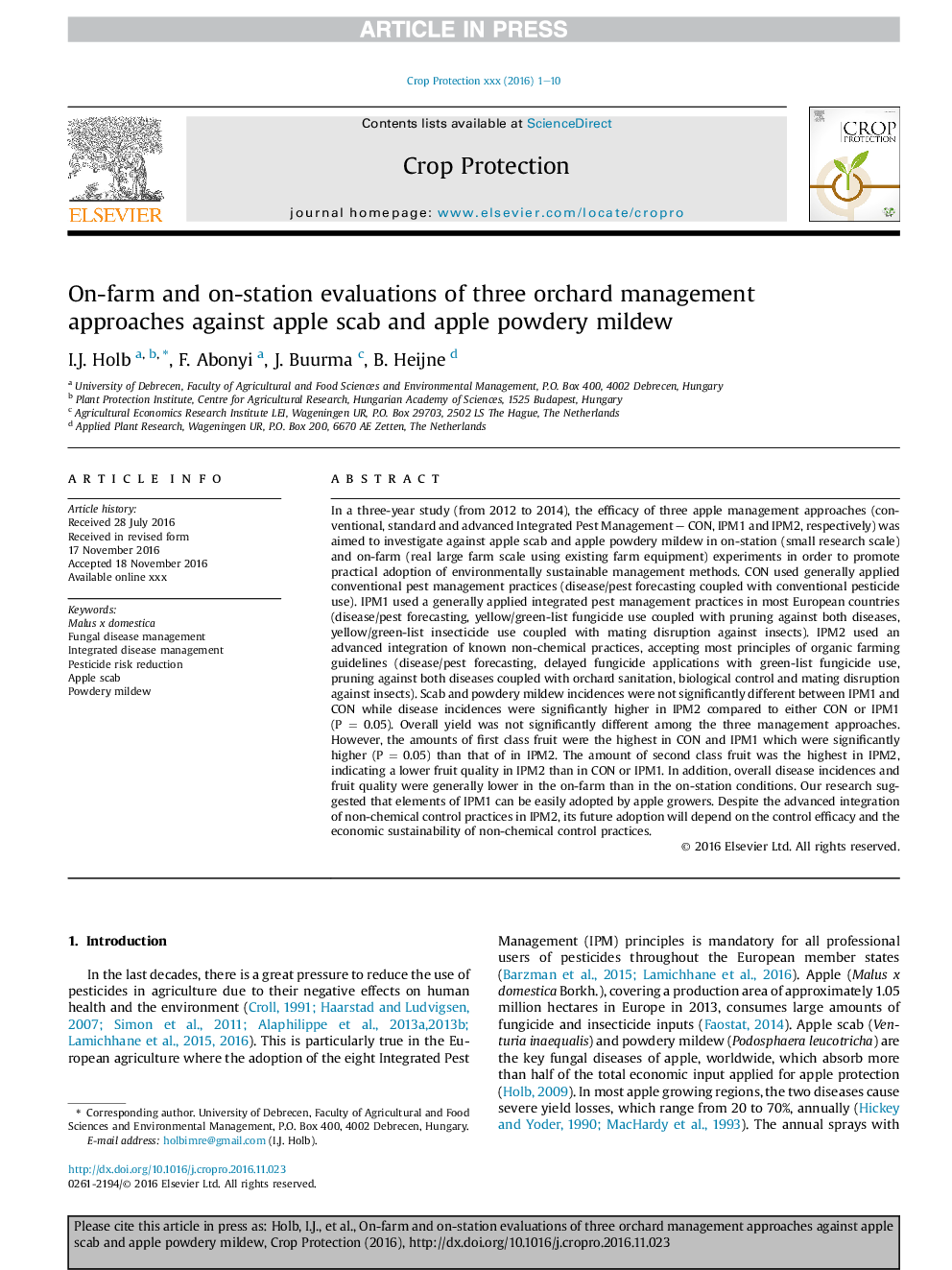| Article ID | Journal | Published Year | Pages | File Type |
|---|---|---|---|---|
| 5760867 | Crop Protection | 2017 | 10 Pages |
Abstract
In a three-year study (from 2012 to 2014), the efficacy of three apple management approaches (conventional, standard and advanced Integrated Pest Management - CON, IPM1 and IPM2, respectively) was aimed to investigate against apple scab and apple powdery mildew in on-station (small research scale) and on-farm (real large farm scale using existing farm equipment) experiments in order to promote practical adoption of environmentally sustainable management methods. CON used generally applied conventional pest management practices (disease/pest forecasting coupled with conventional pesticide use). IPM1 used a generally applied integrated pest management practices in most European countries (disease/pest forecasting, yellow/green-list fungicide use coupled with pruning against both diseases, yellow/green-list insecticide use coupled with mating disruption against insects). IPM2 used an advanced integration of known non-chemical practices, accepting most principles of organic farming guidelines (disease/pest forecasting, delayed fungicide applications with green-list fungicide use, pruning against both diseases coupled with orchard sanitation, biological control and mating disruption against insects). Scab and powdery mildew incidences were not significantly different between IPM1 and CON while disease incidences were significantly higher in IPM2 compared to either CON or IPM1 (PÂ =Â 0.05). Overall yield was not significantly different among the three management approaches. However, the amounts of first class fruit were the highest in CON and IPM1 which were significantly higher (PÂ =Â 0.05) than that of in IPM2. The amount of second class fruit was the highest in IPM2, indicating a lower fruit quality in IPM2 than in CON or IPM1. In addition, overall disease incidences and fruit quality were generally lower in the on-farm than in the on-station conditions. Our research suggested that elements of IPM1 can be easily adopted by apple growers. Despite the advanced integration of non-chemical control practices in IPM2, its future adoption will depend on the control efficacy and the economic sustainability of non-chemical control practices.
Related Topics
Life Sciences
Agricultural and Biological Sciences
Agronomy and Crop Science
Authors
I.J. Holb, F. Abonyi, J. Buurma, B. Heijne,
